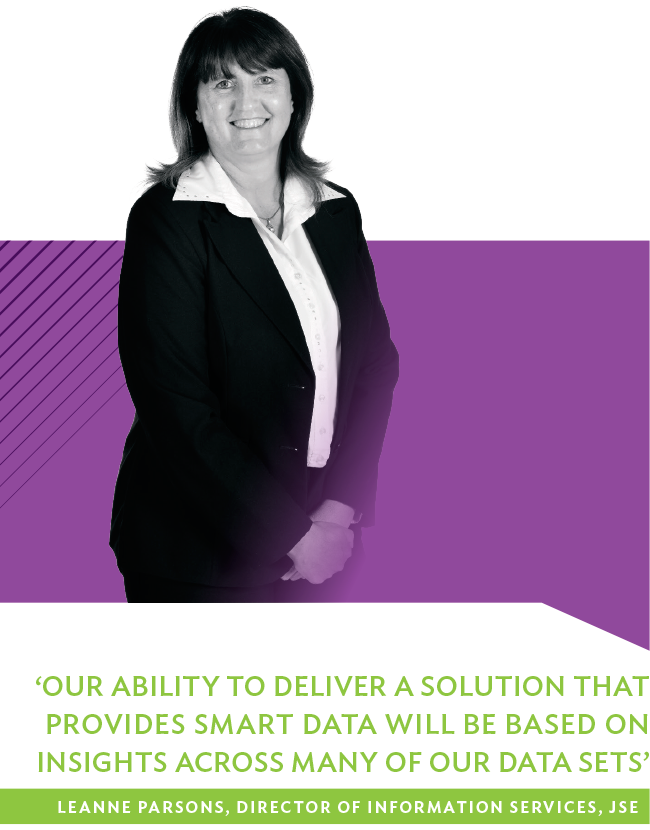Given its investor base of hundreds of the top trading companies in the country, the JSE is driven to ensure that its embrace of big data aligns with that of its customers. Leanne Parsons, Director of Information Services at the JSE explains that the bourse is currently in the initial stages of considering its approach to big data. ‘We want to ensure that we have the right strategy and solution, resulting in increased revenue for the JSE, and enable smarter decisions by our clients,’ she says.
‘Further, we want to diversify our revenue by tapping into new markets, so our ability to deliver a solution that provides smart data will be based on insights across many of our data sets.’
Historically the JSE has collected huge amounts of data but there has not been a simple way to access and morph it into meaningful insight.
‘Clients should be able to make more informed decisions based on our new data solutions to either increase their revenue or reduce their costs,’ says Parsons.

‘For example, in a situation where a market participant uses market quality analytics provided by the JSE, in the future they will be based on the historical data that will predict the best possible time to execute a particular share.’
This is valuable especially given the millions of transactions within all the data sets that the JSE fields. However, as Parsons points out, when partnering with other companies to link datasets, the combination will add even more depth to the JSE’s activities in terms of information services.
The new JSE Information Services division was motivated in line with developments at the JSE’s global exchange peers. Its seven main activities include market data; colocation; indices; valuations; reference data and corporate actions; client data; and business intelligence and statistics.
The division’s short-term goals are to ensure three main objectives, namely to produce quality data as well as information products and services that add value to JSE clients and its business; manage JSE data more effectively to ensure quality and appropriate governance; and commercialise data services to increase and diversify JSE revenue.
Parsons explains that the division deals with a wide range of queries and requests, an example being how a company transaction has an impact across all the seven main focus areas. The introduction of big data services, when it comes, will also be included.
‘Once we have agreed on the strategy with the JSE board, we will monitor the implementation of the various aspects through our very robust reporting processes,’ she says.
‘Measurements of effectiveness will cover corporate, divisional and individual scorecards. And in reassuring our clients, in terms of the Protection Of Personal Information Act, we are focused on the non-disclosure of any personal information.’
The divisional team is eager to embrace big data. ‘We are really passionate about the new opportunities it presents, as well as driving the new strategies. More though, I love the opportunity it presents to evolve the JSE into a data-centric organisation that is more client obsessed than it currently is.’








